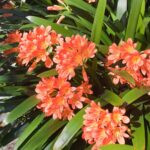Question From:
Rosie Garthwin in Lawson, Blue Mountains NSW
Nature of problem:
leeches
Type of Plant (if known):
grass
Symptoms of Plant Illness (please try NOT to diagnose your problems yourself):
n/a
Soil Type (e.g. sandy, clay or loam) OR Potting Mix Type:
n
How often do you water the plant:
n
How many hours of sunlight does the plant get each day:
n
What type of plant is it:
n/a
How long since you planted it:
n
Have you fertilised? If so, with what and when:
n
Is the plant indoors or outdoors:
n
What other treatments have you given the plant:
n
Upload photo if available:
Other Comments:
Hi, we have a recently arrived problem of leeches in the garden. Our garden, in the mid Blue Mountains, borders the bush – it is a long narrow block – of lawn dotted with a few shrubs and trees. Is on a dry ridge sloping down towards a gully which has a bit of remnant hanging swamp in it. We have been here for 30 years and have always had the odd leech if going for a walk in the rainforest gully a km away – but never before in the garden. Suddenly we have leeches on the lawn, quite close to the house. My partner took the compost down yesterday and came back to find 3 leeches crawling up his legs – seemingly heading towards the warmest (and most vulnerable) bits!
My question is – is there anything we can do about this? We are seasoned bushwalkers and campers and used to dealing with bits of errant wildlife – but leeches in the garden is a bit different – it would fundamentally change how we can use it.
3 years ago my partner picked up a leech on a bushwalk in the rainforest gully – got it off using salt when he spotted in the shower shortly afterwards. Within a week it had turned into a purple leg and a life threatening blood infection, involving 5 days in hospital and IV antibiotics of increasing strength before finding one that worked. (Incidentally – saw your fact sheet on leeches – we never found out the exact nature of the infection – but there was speculation that putting salt on a leech causes it to vomit its gut bacteria into the open wound – so we wouldn’t recommend this method any more) . Recently another neighbour has had a similar experience with a local leech – leading to infection and hospital for some days. So you can understand why we are unlikely to be casual any more about leeches in the garden!
Any ideas? Anything we can apply to discourage them?
Are there any other reports you have of leeches expanding their range? Living in the Blue Mountains for 30 years, and working on the local walking tracks – the locations where you do and don’t find leeches have always been remarkable consistent.
The weather recently has been fairly wet – but looking at rainfall records for Katoomba – is average for the year so far. Certainly the garden isn’t waterlogged anywhere, which it is in really wet periods.
We are organic gardeners, and grew our own food for many years on the lower part of the garden – now down to grass due to full time jobs. Below that is zoned ‘bushland conservation’. So we would need to be really careful about anything we might introduce into that environment. I keep the grass mown regularly, as we are always conscious of bushfire requirements for garden tidiness.
Look forward to any consideration you are able to give it!
Answer: Hi Rosie, The spread of the leeches is definitely due to the very wet Summer. I really have no idea of how to get rid of them without doing awful environmental damage. You might try spraying the area with Wasabi – 1 teaspoon of Wasabi to 1 litre of water. You could also spray with black tea or with Poss-Off or any possum repellant. These are based on harmless alum. Good luck, Don



